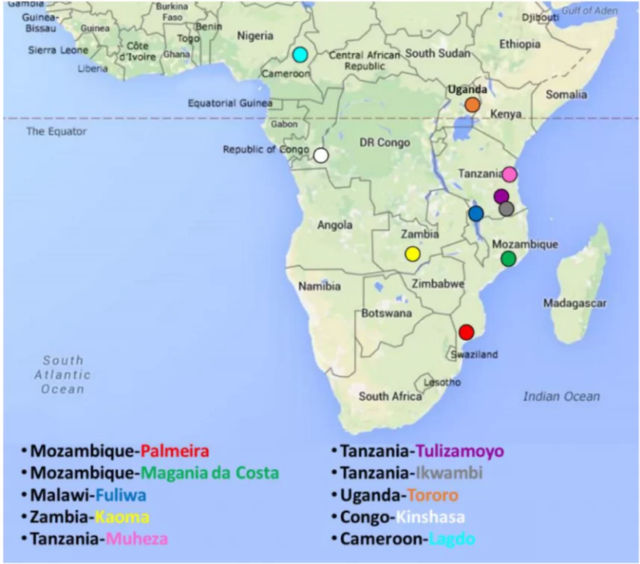 Following several months of research and experiments, some scientists at CRID led by Dr. Delia Doreen Djuicy under the supervision of Prof. Charles Wondji published a scientific paper titled CYP6P9-Driven Signatures of Selective Sweep of Metabolic Resistance to Pyrethroid in the Malaria Vector Anopheles funestus Reveal Contemporary Barriers to Gene Flow. https://www.mdpi.com/881224
Following several months of research and experiments, some scientists at CRID led by Dr. Delia Doreen Djuicy under the supervision of Prof. Charles Wondji published a scientific paper titled CYP6P9-Driven Signatures of Selective Sweep of Metabolic Resistance to Pyrethroid in the Malaria Vector Anopheles funestus Reveal Contemporary Barriers to Gene Flow. https://www.mdpi.com/881224
With insecticide resistance being a major issue in the fight against the malaria vector, one of the major challenges faced by researchers on ground during this work is reanalysing the entire data set three times from scratch. As Dr. Delia reveals, to obtain desired results, she had to persist and through several deep discussions with co-authors and colleagues mentioned in the acknowledgement part in the manuscript, she attained her goal.
According to the paper published from the research work carried out, scientists demonstrate that the P450-based resistance mechanism is not confined to the Southern part of Africa but is now fixed there and has spread to other parts of Eastern Africa.
“We identified reduced gene flow between mosquito populations from southern/eastern Africa and those from Central Africa, which we hypothesise is due to the Great Rift Valley” Delia adds
According to the results, it was identified that the rift valley region probably acts as a strong barrier to gene-flow, stressing the importance of continuous monitoring of major vector population structure for vector control programmes. The study also provides new insights into the population structure of Anopheles funestus mosquitoes across Africa. This is very useful for Public Health authorities to make the right and informed decisions regarding specific integrated vector control measures which they put in place to improve the protection of the local population.
To read and download detailed scientific publication, please visit this link https://www.mdpi.com/881224 Co-authored by Delia Doreen Djuicy 1,*,Jack Hearn 2,Magellan Tchouakui 1,Murielle J. Wondji 1,2,Helen Irving 2,Fredros O. Okumu 3 andCharles S. Wondji






